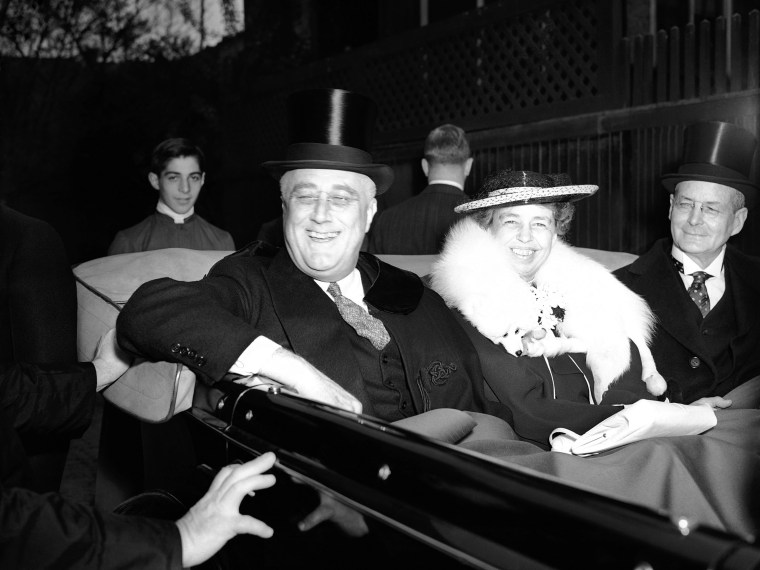What may have seemed like a wonkish, technocratic, good-government policy clashed with what turned out to be deeply-ingrained feelings among many Americans about when Thanksgiving should be celebrated. The Associated Press story announcing the move said Roosevelt "was shattering another precedent," and quoted a town official of Plymouth, Massachusetts saying the traditional date was "sacred." [...] Republicans pounced, and used the move to portray Roosevelt as a power-mad tyrant. In an early example of Godwin's Law, FDR's recent presidential opponent Alf Landon said Roosevelt sprung his decision on "an unprepared country with the omnipotence of a Hitler." Senator Styles Bridges of New Hampshire suggested that while Roosevelt was at it, he should abolish winter.
The great national 'Franksgiving' uproar
Obama, for example, is not the first Democratic president that Republicans compared to Hitler. Remember when FDR moved Thanksgiving?

The story of Franklin Roosevelt moving Thanksgiving is probably pretty well known, but with the holiday coming up tomorrow, and with the ongoing debate about executive powers apparently fresh on the political world's mind, it's probably worth a trip down memory lane.
Historically, Thanksgiving was celebrated on the final Thursday of November. But in 1939, with the nation still dealing with the effects of the Great Depression and the unemployment rate above 15%, there was a small problem with the calendar: Thanksgiving fell on Nov. 30.
This may not sound especially important, but for businesses relying on holiday sales, this was a threat to bottom lines -- it shortened the number of shopping days between Thanksgiving and Christmas. Business owners, pointing to the weak economy, demanded action.
And FDR delivered, issuing an executive order that moved the official date of Thanksgiving up a week, from Nov. 30 to Nov. 23. As Andrew Prokop explained, this really didn't go over well.
One Republican mayor labeled the new date "Franksgiving." Extending the protest further, roughly half the states chose to honor the old date rather than the new one.
The date then bounced around for a couple of years, until Congress eventually passed a new law, moving the date from the final Thursday in November to the fourth Thursday in November.
So, FDR and businesses owners scored a partial win, at least insofar as the Nov. 30 problem is concerned.
The thing I like about this story now is its contemporary salience: President Obama, for example, is not the first Democratic president that Republicans compared to Hitler.
Plus, try to imagine the reaction if Obama used an executive order to change the date of a major holiday without congressional approval. If his critics go berserk when he uses prosecutorial discretion on immigration, Republicans might very well faint if Thanksgiving moved to create more shopping days.